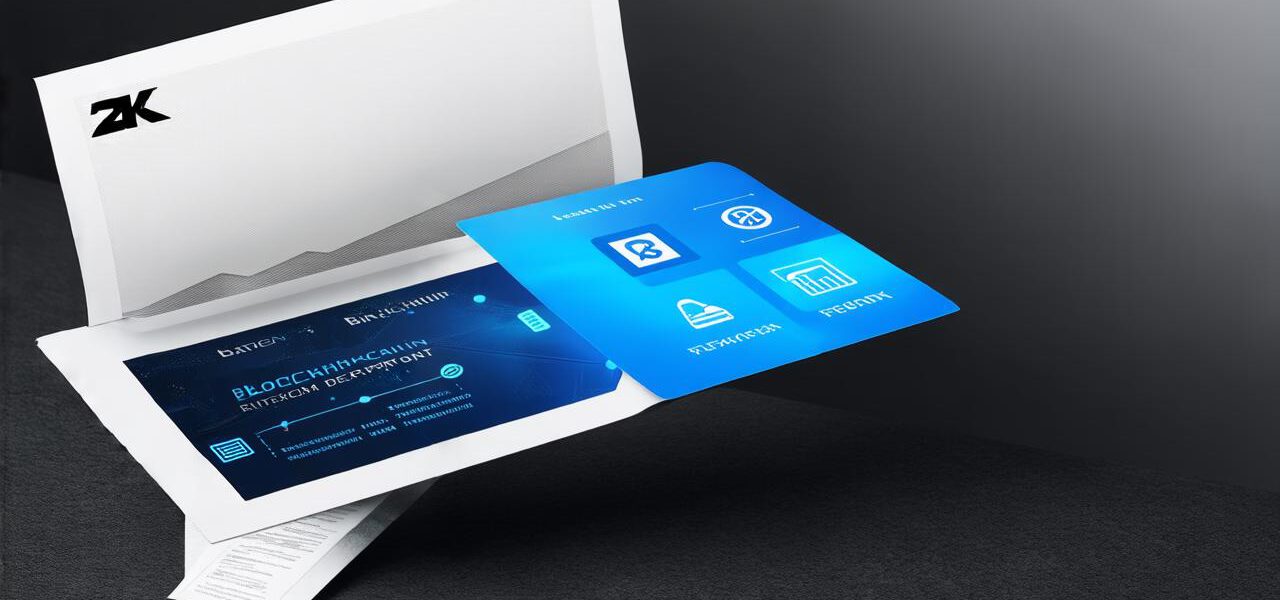
Introduction to Blockchain Development: What is it and how does it work?
What is Blockchain?
Blockchain is a distributed database that contains a continuously growing list of records, called blocks, which are linked and secured using cryptography. Each block contains a cryptographic hash of the previous block, along with other data, creating an unalterable chain of blocks that cannot be tampered with or altered in any way. The decentralized nature of blockchain technology makes it resistant to cyberattacks and fraud.
How does Blockchain work?
Blockchain technology is based on consensus algorithms that allow multiple parties to agree on the state of a shared ledger. These algorithms ensure that all participants have access to the same information and that no single party can manipulate the data without the consent of others. This creates a secure, transparent, and efficient system for recording and verifying transactions.
Benefits of Blockchain Development
- Security: Since blockchain technology is decentralized and relies on cryptography to secure data, it is resistant to cyberattacks and fraud. This makes it an ideal solution for industries such as finance, healthcare, and supply chain management, where data security is of utmost importance.
- Transparency: All transactions on the blockchain are publicly available, making it easy for anyone to audit and verify the integrity of the system. This creates a high level of trust between parties and reduces the need for intermediaries.
- Efficiency: Blockchain technology eliminates the need for intermediaries, reducing transaction times and costs. For example, cross-border payments can be processed much faster and at lower costs using blockchain technology.
- Decentralization: Since the blockchain is maintained by a network of participants rather than a central authority, it offers greater control and autonomy to users. This makes it ideal for applications where decentralization is essential, such as social media platforms and online marketplaces.
Real-life examples of Blockchain Development
Blockchain development has already had a significant impact on several industries. Here are some real-life examples:
- Cryptocurrencies: Bitcoin is the most well-known cryptocurrency, but there are thousands of others that use blockchain technology to enable secure and decentralized transactions. For example, Ethereum is a popular platform for creating dApps that allow users to buy and sell digital assets such as non-fungible tokens (NFTs) and decentralized finance (DeFi) applications.
- Supply Chain Management: Blockchain technology is being used in supply chain management to increase transparency and reduce fraud by creating a shared ledger that tracks products from production to delivery. For example, Walmart has implemented a blockchain-based system to track the origin of food products, which has helped to prevent foodborne illness outbreaks.
- Healthcare: Blockchain technology is being used in healthcare to store patient data securely and enable interoperability between different systems. For example, MediLedger Project is a blockchain-based initiative that aims to improve medication safety by creating a tamper-proof ledger of prescription drugs.
- Voting Systems: Blockchain technology is being used to create secure and transparent voting systems that are resistant to tampering and hacking. For example, West Virginia has implemented a blockchain-based voting system that allows soldiers stationed abroad to vote securely and efficiently.
Future of Blockchain Development
The future of blockchain development looks promising as the technology continues to evolve and gain adoption across various industries. Some potential future applications include:
- Identity Verification: Blockchain technology can be used to create a secure and decentralized system for verifying identities, which can help to reduce fraud and increase security.
- Smart Contracts: Smart contracts are self-executing programs that run on the blockchain and can automate complex business processes such as contract execution, payment processing, and supply chain management. The use of smart contracts can significantly reduce the need for intermediaries and improve efficiency.
- Decentralized Storage: Blockchain technology can be used to create a decentralized storage system that allows users to store and access their data securely without relying on central servers. This can help to prevent data breaches and increase privacy.
- Predictive Analytics: Blockchain technology can be used to collect and analyze large amounts of data, which can be used for predictive analytics applications such as fraud detection, risk assessment, and customer segmentation.
Conclusion
Blockchain development has the potential to revolutionize various industries by creating secure, transparent, and efficient systems for recording and verifying transactions. As the technology continues to evolve, we can expect to see more real-life applications and innovative uses of blockchain technology across various sectors.



